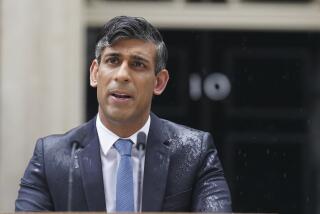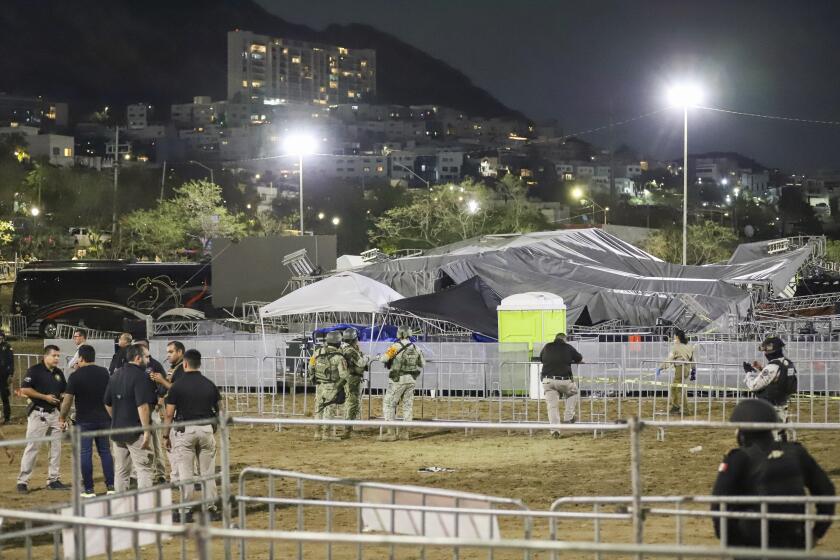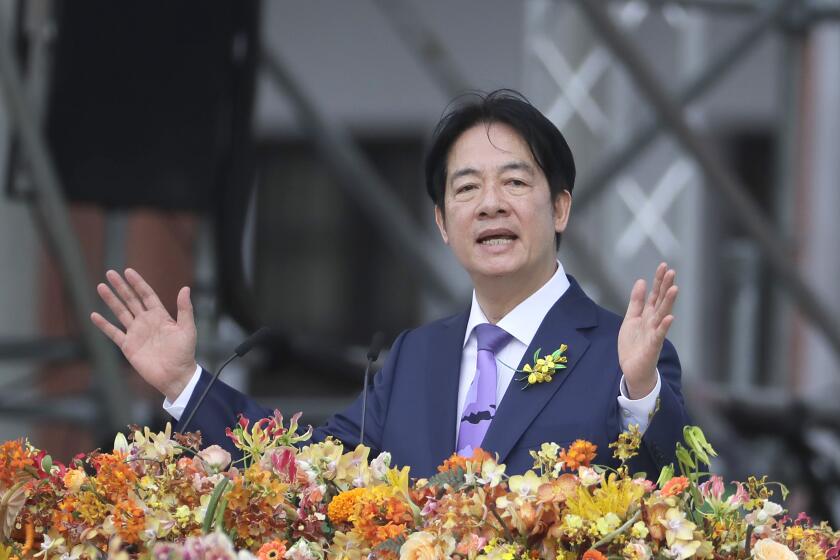Aquino Orders Rightist Vigilantes Disbanded
President Corazon Aquino on Monday ordered her military commanders to immediately begin disbanding all armed right-wing vigilante groups in the Philippines but closed the door on any peace talks with the Communist guerrilla movement.
Aquino appeared before the Philippine Congress to deliver her annual state-of-the-nation address.
“Let us not lose the moral edge in this war,” she said, in ordering an end to the vigilante groups that are believed to have killed scores of human rights workers and other civilians in recent months.
But Aquino also said she will allow the formation of new armed civilian units, and for this she was promptly criticized by human rights lawyers and opposition politicians.
Some of the vigilante groups are officially sanctioned and armed by the Philippine military, while others appear to be only tolerated by the military, which sees them as a front line against the guerrillas in remote villages where the army cannot maintain a strong presence.
Opposition Congressman Rodolfo Albano said on state-run television that Aquino’s address was “full of contradictions.”
“For example, he added, “she said we are on top of the insurgency, and yet she is asking the help of civilians. This means we are not on top of the Communist insurgency.”
A leftist leader said: “She banned one group of vigilantes and ordered the formation of another. One minus one equals zero.”
There were other apparent contradictions in the president’s speech. She attempted to strike an optimistic note on virtually all the controversial issues facing her government, including the troubled economy, but attacked her own bureaucrats for failing to deliver basic goods and services to the people.
She said the economy is booming, that unemployment is down and that 1988 “may be remembered as the year that the insurgency was broken,” but she criticized her Cabinet for allowing the rich and the middle class to benefit most from the boom.
She saved her rosiest assessment for the state of her government’s effort to put down the Communist insurgency.
“For the armed left,” she said, “it has been a year of defeats and retreats. . . . The rejection of our peace efforts restored to government the moral basis for war. I wish we could still pursue the path of peace, yet until the (guerrillas) and their friends come to trust their doctrines to the ballot box rather than the (gun), government has no choice except to defend our people with the gun.”
She congratulated her government on its economic performance. She said there has been “an economic takeoff” and that it proves that “people’s-power capitalism is the best policy.”
But then she attacked her Cabinet secretaries for failing to deliver the benefits of economic improvement to the majority of the country’s 58 million people.
Plea for Common People
“It is in the fields and barrios, in the slums of our cities, that we will ultimately be judged. The time for planning is over. The time for action is now. . . . Bring more of the new prosperity to the common people . . . or you are out.”
This remark brought the only significant applause of the speech.
Aquino conceded that “the real national emergency” involves declining educational standards. She noted that only 70% of school-age children attend elementary school in the Philippines and that only 60% these complete all grades.
She mentioned only in passing the two big U.S. military bases here, although there had been speculation that she would announce a settlement in talks on their future.
However, early today, Philippines and American negotiators announced that they were indefinitely suspending the talks, which began in April and were due to end this month, citing “substantial disagreement” over compensation to the Manila government, the Associated Press reported.
A joint statement said it was the Philippines’ negotiators that requested the suspension.
“The amount offered (by the Americans) was far, far below what we were demanding,” the wire service quoted Leonides Caday, a Philippine negotiator, as saying.
American spokesmen were not immediately available for comment.
More to Read
Start your day right
Sign up for Essential California for news, features and recommendations from the L.A. Times and beyond in your inbox six days a week.
You may occasionally receive promotional content from the Los Angeles Times.






